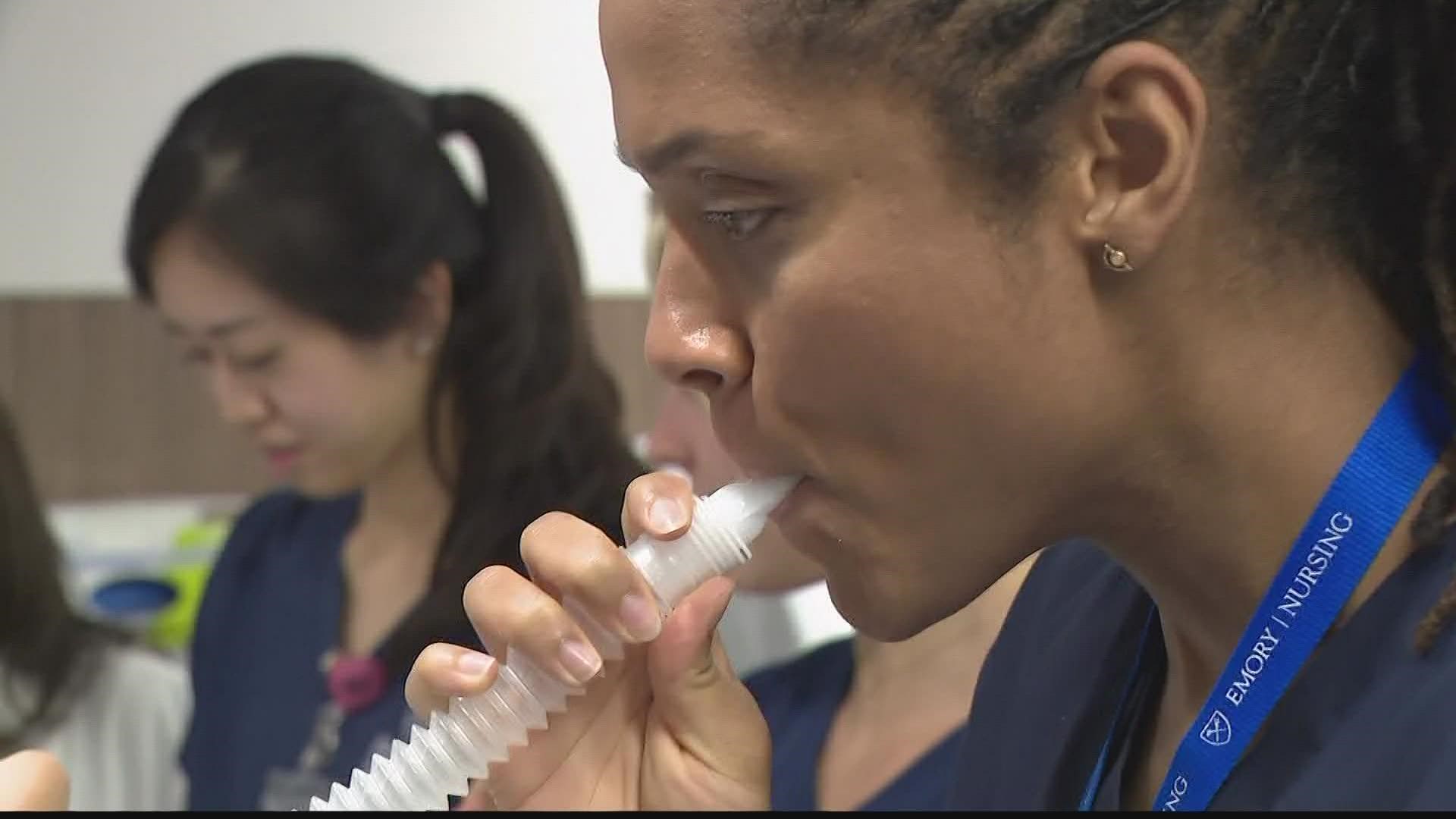ATLANTA — Georgia needs more nurses. Yet, longtime obstacles, including a lack of space for training, have often hindered nursing schools' ability to help meet that need.
Now, local schools are working to expand their programs in hopes of preparing more graduates.
"Lack of faculty and lack of clinical rotations are the two main reasons why we can't prepare more nursing graduates," Linda McCauley, dean of Nell Hodgson Woodruff School of Nursing, explained. "We grew the school of nursing from about 400 students in 2009 to 1,400 students today, and we're not finished yet. We have a lot more capacity in our new facility to meet the needs of Georgia and beyond, but 60% of our students stay in Georgia."
According to McCauley, who said 60% of Emory nursing students stay in Georgia, the newly created Emory Nursing Learning Center will aim to address the significant nursing shortage in the U.S. The $20.6 million expansion features simulations and skills labs that mimic a hospital floor, giving Emory the ability to train more students in a real life setting.
"We can use this facility versus going into a hospital," McCauley said. "So if we spend half of our education in this facility, that means we can have twice as many students."
Increasing the number of nursing school students is critical as the need for more nurses grows exponentially, and other local schools are also working to make sure they're not turning away those who are eligible.
A spokesperson for Berry College confirmed the program plans to double its number of nursing graduates thanks to a $5 million donation for nursing scholarships for the school.
“This most recent transformative gift will give a tremendous boost to Berry’s young and stellar nursing program, allowing it to attract top students who can benefit from the first-rate clinical opportunities in the Rome medical community,” Berry President Steve Briggs said.
Georgia State University, too, plans to expand its nursing program to 250 students, more than three times its current number thanks to a growing partnership with Grady Hospital.
In addition, GSU will fast-track a renovation of its own simulation lab, a critical component of expansion, according to Dr. Huanbiao Mo, dean of the program.
"Simulation is where nursing students learn basic and advanced patient care skills in a controlled environment before moving on to live patients. High-quality simulation can replace up to 50% of a nursing student's clinical hours without affecting the quality of undergraduate nursing education."
Meanwhile, Emory leaders said the nursing school's new facility will not only expand access to its own students but also include outreach to local high school students with hopes to inspire the next generation of healthcare workers.
"We're introducing them to an array of health professionals," McCauley said. "So that certainly, we can focus on the nursing shortage we need. But we need care assistants, we need radiology techs. We can introduce high school students to that here."

